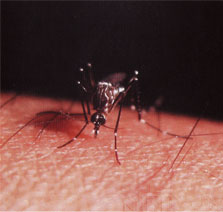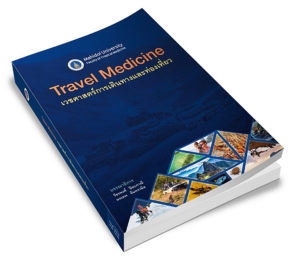UPDATE: September 2023. Please find the revised new information (2023) on the following link LINK:
Dengue vaccine for foreigners/travelers in Thailand: Should I get it? ** UPDATE 2023
The following text may not accurate nor update. Please find the new information on this link.
Update 1 December 2017: The vaccine company (Sanofi) has just published a press release informed that dengue vaccine might increase the risk to develop severe disease if given to someone who never had dengue infection before.
The article below had been revised accord to the new information. Some changes are indicated in the underlined text.
Right now dengue vaccine has been registered and available in some hospitals in Thailand, including ours. Some travelers did ask us whether they should get dengue vaccine or not and what is our recommendation.
In fact, to answer this question is not easy as it seems.
For those who prefer a quick answer without any detail. Our answer is no. We DO NOT recommend the use of dengue vaccine in travelers visiting Thailand. For those who live/work in Thailand (the expat), we also do not recommend. Currently, we will give dengue vaccine only to local people who live here and had ever get dengue infection in the past.
What is the reason behind? Why don’t we recommend to use in travelers? We will try to answer and explain as simple as possible. However, some basic knowledge is required in order to understand. It is recommended to read these articles first if you haven’t already.
- Useful information about dengue infection for travelers
- Risk of dengue infection among travelers in Southeast Asia
- “I have been diagnosed with Dengue fever. What should I do? Should I worry?”
Here are some important information about dengue infection and dengue vaccine:
1. Dengue virus that cause dengue infection has 4 different serotypes namely Dengue 1,2,3,4 (DEN1, DEN2, DEN3, DEN4). If you get infected with DEN1, you will have life-long immunity against DEN1. However, you may have a chance to get DEN2, 3, 4 later in your life.
2. Scientists believe when people get primary (1st time) infection with dengue virus, the disease is usually mild and self limited. However, if that patient get dengue infection again (secondary infection), there is an increase risk to develop more severe disease. However, it doesn’t mean that all patients with secondary dengue infection will be severe. In fact, the majority of the cases is still mild, but chance to develop severe disease is higher than primary infection.
 Ades mosquito that transmitted dengue virus
Ades mosquito that transmitted dengue virus
3. So ideal dengue vaccine should create life long immunity against all four serotypes of dengue virus. If we have that kind of vaccine, that’s fantastic. Unfortunately, we do not live in an ideal world.
4. The only available vaccine that we have today is call Dengvaxia®. It is a live attenuated dengue vaccine contains all four serotypes of dengue virus. In term of safety, it is excellent. There is no safety concern of this vaccine i.e. the side effect is usually mild, no serious side-effect ever reported from the vaccine. However given dengue vaccine is a lived vaccine; it is not contraindicated to use in certain persons such as pregnant/breast feeding woman, immunocompromised person, people who use corticosteroid, who has cancer.
5. However, when talking about the efficacy, it is not excellent. The overall efficacy of vaccine against all serotypes of dengue virus was around 65%. That means even you get the vaccine you still have a chance to get dengue infection, it could actually reduce to risk approximately 65% When researchers looked into detail, they found that the efficacy against DEN3, DEN4 was very good when compared to dengue DEN1, DEN2
5. Before the vaccine is commercially available, it has been used in more than 30,000 healthy volunteers mostly were in children. Researchers found that younger children (age less than 9 years) responded poorly to the vaccine when compared to older children or adult. Moreover, during the study, researchers found a warning signal that might suggested that giving the vaccine to young children may not good. So this is why the FDA set the lower age limited for dengue vaccine to 9 years old.
6. Research also showed that children who have been exposed to dengue virus actually responded better than those who never exposed to dengue virus before. It is likely that children at age less than 9 years may never been bitten by an infected mosquito (i.e. never exposed to virus). This group of children will get less benefit of the vaccine and may have more chance to develop severe disease. So it is not recommended to use in this group.
7. According to the #5, #6, we could adapt the research result to apply in traveler group. Let’s say, if Mr. A, a European traveler plan to visit Thailand for the first time. So he has never exposed to dengue virus in his life before. So it is not recommend to give him the vaccine since the benefit is less and there may be a safety concern as well.
8. Currently, World Health Organization (WHO) recommends dengue vaccine in people age 9-45 years old who live in the dengue endemic area. There is no recommendation for travelers.
9. In conclusion, let us repeat our recommendation again
We DO NOT recommend the use of dengue vaccine in travelers visiting Thailand. For those who live/work in Thailand (the expat), we also do not recommend. However if you have already get dengue infection in the past, you may be eligible to get the vaccine. Our doctor will give a sound recommendation to you.
FAQ about dengue vaccine
1. What is the cost of dengue vaccine?
- In our hospital, it is approx. 3,000 baht per dose.
- You need to get three doses of vaccine on Day 0, 6th month and 12th month.
2. What is the indication of dengue vaccine?
- Person aged between 9-45 years who lived in dengue risk area
- Had ever had with dengue infection in the past
- No contraindication of vaccine i.e. no allergy, not pregnant, not breast-feeding, not immunocompromised, has no cancer, etc
- There is no recommendation to use in travelers
3. What is the efficacy of dengue vaccine?
- Efficacy to prevent dengue infection around 65%
- Research also showed that among people who get vaccine and develop dengue infection had less chance to be a severe form and has less chance to be hospitalized.
4. I want to get dengue vaccine, what should I do?
- Since dengue vaccine is a new vaccine, It is recommended to read/explore reliable article regarding dengue vaccine.
- In our hospital, all travelers must consult with our doctor in order to get the vaccine prescription
- It is recommended to make an appointment before visiting us.
5. Should I get dengue vaccine?
- The key factor now is the history of dengue infection in the past; if you never have dengue infection before, it is not recommended to get vaccine.
- If you have been infected with dengue infection before, you may be eligible to get the vaccine. However you need to visit the doctor. He/She will review your medical history carefully and will give a proper recommendation.
- It is recommended to discuss with the doctor to learn more about benefit-cost-risk to get the vaccine.
- For example, we know that the efficacy of vaccine is 65%, Mr A may think that it is not good since the efficacy is not 90+%. While Mr. B may think that 65% protection rate is good enough and dengue infection is potentially fatal, and he hates dengue, so he wants to get vaccine. Both perspectives are fine.
- No matter you should to get dengue vaccine or not, it is recommended to prevent yourself against mosquito bite. Whenever you have high fever or suspected dengue infection, you need to see a doctor.
6. How long will dengue vaccine protect me?
- There are not enough scientific information to answer this question. However we know that in the clinical study, researchers followed the volunteers up to 6 years and there is no booster recommendation. Some still have antibodies.
- But at 10, 15 years post vaccination, will volunteer still be protected against dengue or not? Unfortunately, at this point, no one knows the real answer, we need to wait for more information/research.
7. Where can I find more information about dengue vaccine?
- World Health Organization. Dengue vaccine: WHO position paper – July 2016.
- World Health Organization. Questions and Answers on Dengue vaccine.
- Hadinegoro SR, et al. Efficacy and Long-Term Safety of a Dengue Vaccine in Regions of Endemic Disease. N Engl J Med. 2015;373(13):1195-206.
- Capeding MR, et al. Clinical efficacy and safety of a novel tetravalent dengue vaccine in healthy children in Asia: a phase 3, randomised, observer-masked, placebo-controlled trial. Lancet. 2014;384(9951):1358-65.
- Villar L, et al. Efficacy of a tetravalent dengue vaccine in children in Latin America. N Engl J Med. 2015;372(2):113-23.
- Sanofi Pasteur. Sanofi updates information on dengue vaccine. http://mediaroom.sanofi.com/sanofi-updates-information-on-dengue-vaccine/ [Accessed 1 Dec 2017]


I contacted Dengue while working in India in about 1996. I was told that I had the 2 worst strains of the 4. I am now living in Cambodia and will be living in Asia for at least the next 5 to 10 years. I am 67 years old. Would it be in my best interest to get the vaccine?
Right now dengue vaccine is registered to be use in people aged 9-45 years only. So in your case, mosquito bite prevention is likely to be your best option.
Question: European, have lived in the tropics seven years. However I have got dengue twice (confirmed both times by blood test) already. Concerned about worse reaction if I get it a third time. Would you recommend vaccination in this case?
Thanks for the question. However it is very difficult for us to give a specific recommendation to someone via Internet. Since there are many factors to consider such as age, duration of stay in the tropics and how long will someone stay in the tropics, previous dengue infection, etc. Not only that, one key factor that our doctor have to access is the risk perception and risk tolerance of each individual.
Such as if we know that the chance that someone will develop dengue infection is 1% per year (this is just a sample number). What do you think? Is this 1% risk is high or low? Is it acceptable or not? Should we get three shots of dengue vaccine in order to reduce the risk to 0.35%? I think we could imagine that, everyone looks at the same number differently and may have different perspectives about risk and benefit of vaccine (which is called risk perception). So formal counselling/discussion with a doctor is needed.